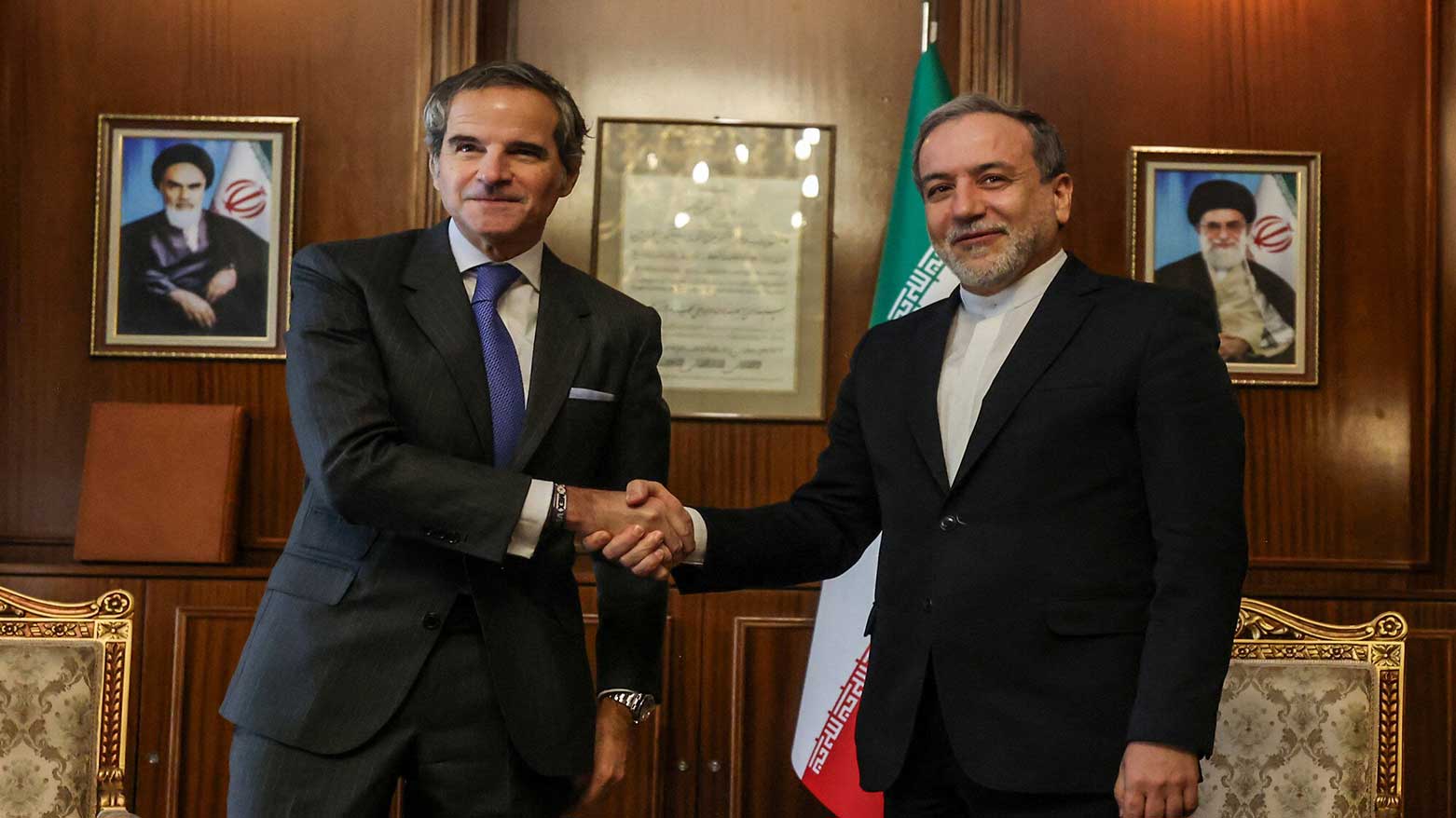Iran’s FM to Meet IAEA Chief in Egypt Amid Strained Nuclear Oversight Ties
Cairo Hosts Key Talks Between Iran and IAEA to Establish Updated Nuclear Oversight Framework, Attended by Araghchi, Grossi, and Egypt’s FM Badr Abdelatty.

ERBIL (Kurdistan24) — Iranian Foreign Minister Abbas Araghchi is set to meet United Nations nuclear watchdog chief Rafael Grossi in Cairo on Tuesday, marking the first high-level contact between Tehran and the International Atomic Energy Agency (IAEA) since Iran suspended cooperation with the body two months ago.
According to Iran’s state-run IRNA news agency, the talks are aimed at concluding negotiations on a new protocol for interaction between Tehran and the IAEA. Egypt’s Foreign Ministry confirmed that the meeting will bring together Araghchi, Grossi, and Egyptian Foreign Minister Badr Abdelatty.
The meeting comes against the backdrop of heightened tensions following the 12-day war with Israel in June, during which Israeli and U.S. strikes targeted Iranian nuclear facilities. Tehran subsequently halted cooperation with the IAEA, accusing the agency of failing to condemn the attacks and warning that any future engagement would take “a new form.”
Last month, a limited IAEA team briefly visited Iran to oversee the refueling process at the Bushehr nuclear power plant. However, inspectors were denied access to other key nuclear sites, including Fordo and Natanz, which sustained damage during the conflict.
Meanwhile, Iran faces mounting diplomatic pressure from Europe. Britain, France, and Germany have initiated steps to reimpose UN sanctions under the 2015 nuclear deal’s dispute resolution mechanism, citing Tehran’s continued non-compliance with its commitments. The so-called “snapback” mechanism could restore international sanctions lifted under the agreement.
Tehran has condemned the European move as “illegal,” warning it could further erode cooperation with the IAEA. Western powers and Israel maintain that Iran is covertly seeking to develop nuclear weapons, an accusation the Islamic Republic firmly rejects, insisting its nuclear program is strictly for peaceful purposes.
The 2015 Joint Comprehensive Plan of Action (JCPOA), signed under former U.S. President Barack Obama, placed limits on Iran’s uranium enrichment activities in exchange for the lifting of international sanctions.
It also subjected Iran’s nuclear facilities to extensive monitoring by the IAEA. However, Trump withdrew the United States from the deal in May 2018, reimposing sweeping sanctions on Iran and demanding a broader agreement that addressed not only nuclear activities but also Iran’s regional influence and missile capabilities.
U.S. President Donald Trump has repeatedly stated that any nuclear agreement with Iran must require zero uranium enrichment inside Iran and impose strict limitations on Tehran’s ballistic missile program, arguing that Iran’s growing missile arsenal poses a threat to the security of Middle Eastern countries and the region’s overall stability.
Following the U.S. withdrawal, Iran began gradually reducing its compliance with the JCPOA, enriching uranium beyond agreed limits and restricting access for IAEA inspectors. This marked a turning point in Tehran’s relations with the agency, as inspections became more limited and suspicions over undeclared activities grew.
The IAEA has since reported multiple instances of Iran exceeding enrichment thresholds and stockpile limits, deepening international concerns about the potential weaponization of its nuclear program.
While European powers have sought to preserve the JCPOA, they have increasingly expressed frustration with Tehran’s non-compliance. The dispute has left the agreement hanging by a thread, with Iran signaling that its cooperation with the IAEA will depend on guarantees that its nuclear program will not be targeted again, and that sanctions relief will be meaningfully restored.
The Cairo meeting is seen as a critical juncture that could either open the door to a renewed framework for cooperation between Iran and the IAEA or further entrench the deadlock, with implications not only for the future of the JCPOA but also for regional security and international non-proliferation efforts.